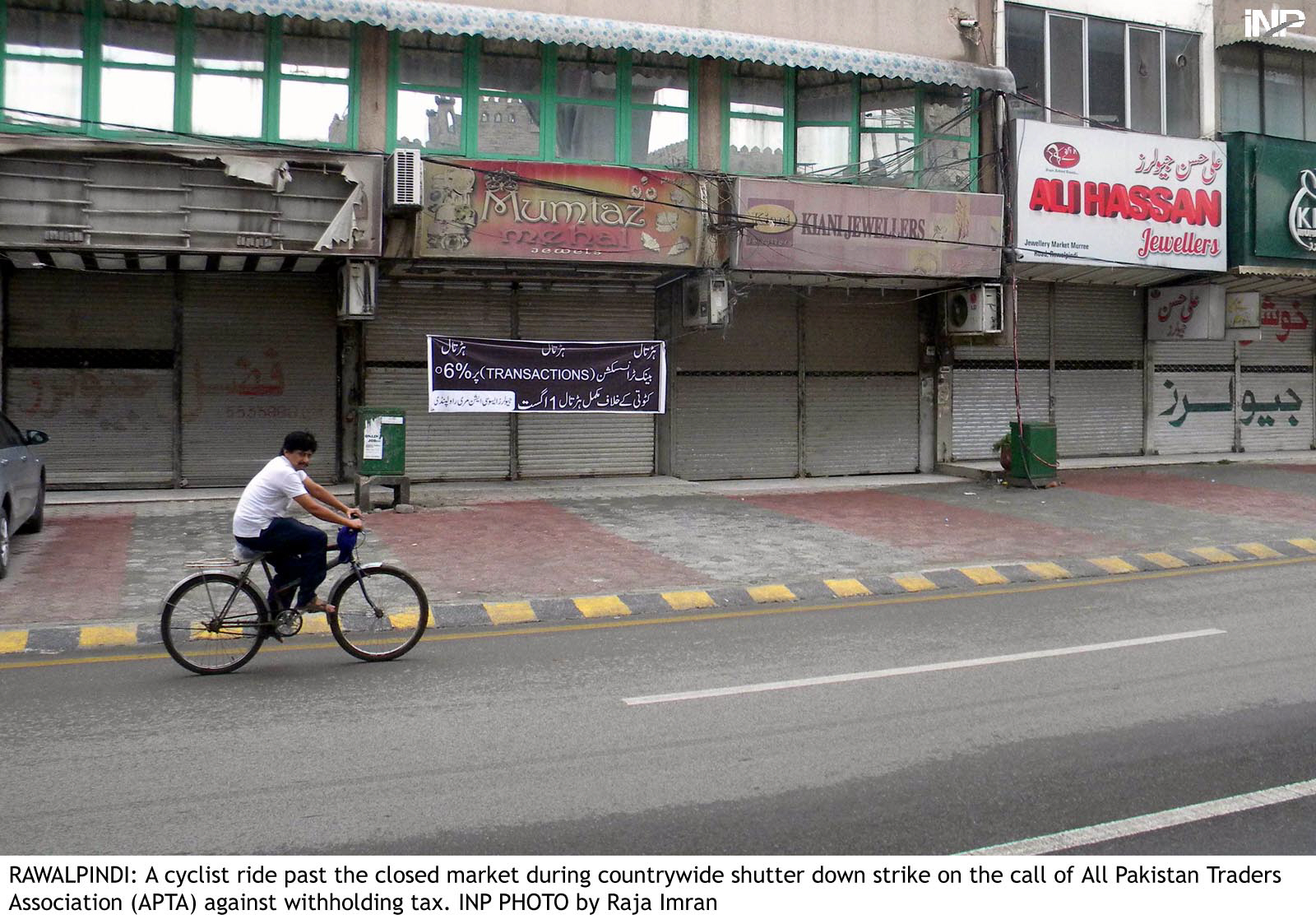
Even mere indications of there being a deal in the offing between the government and traders raise suspicions regarding the former’s intentions of widening the tax net. Why would the government need to negotiate when it is trying to broaden the tax net and why would it look to accommodate those who do not file income tax returns? Is the entire exercise being undertaken just to show the IMF that steps are being taken in reforming the tax structure, which would mean a green signal for the next loan tranche of the bailout programme? Are negotiations being carried out with an aim to appease those political forces which have put their weight behind the traders in a bid to shore up their chances at the next elections? The traders have proved to be a thorn in the government’s resolve to reduce tax evasion. They went on the warpath after the withholding tax levy was announced in the budget and seem to be getting away with filing their tax returns without scrutiny. This means they can declare assets to their liking and under-invoice as much as they want. It seems that in Pakistan, as long as you have links with the right people in the right places at the right time, you can get away with anything. The traders might have managed to do just that.
Published in The Express Tribune, August 2nd, 2015.
Like Opinion & Editorial on Facebook, follow @ETOpEd on Twitter to receive all updates on all our daily pieces.

1732184775-0/BeFunky-collage-(80)1732184775-0-165x106.webp)

1731933289-0/BeFunky-collage-(68)1731933289-0-165x106.webp)













COMMENTS (2)
Comments are moderated and generally will be posted if they are on-topic and not abusive.
For more information, please see our Comments FAQ